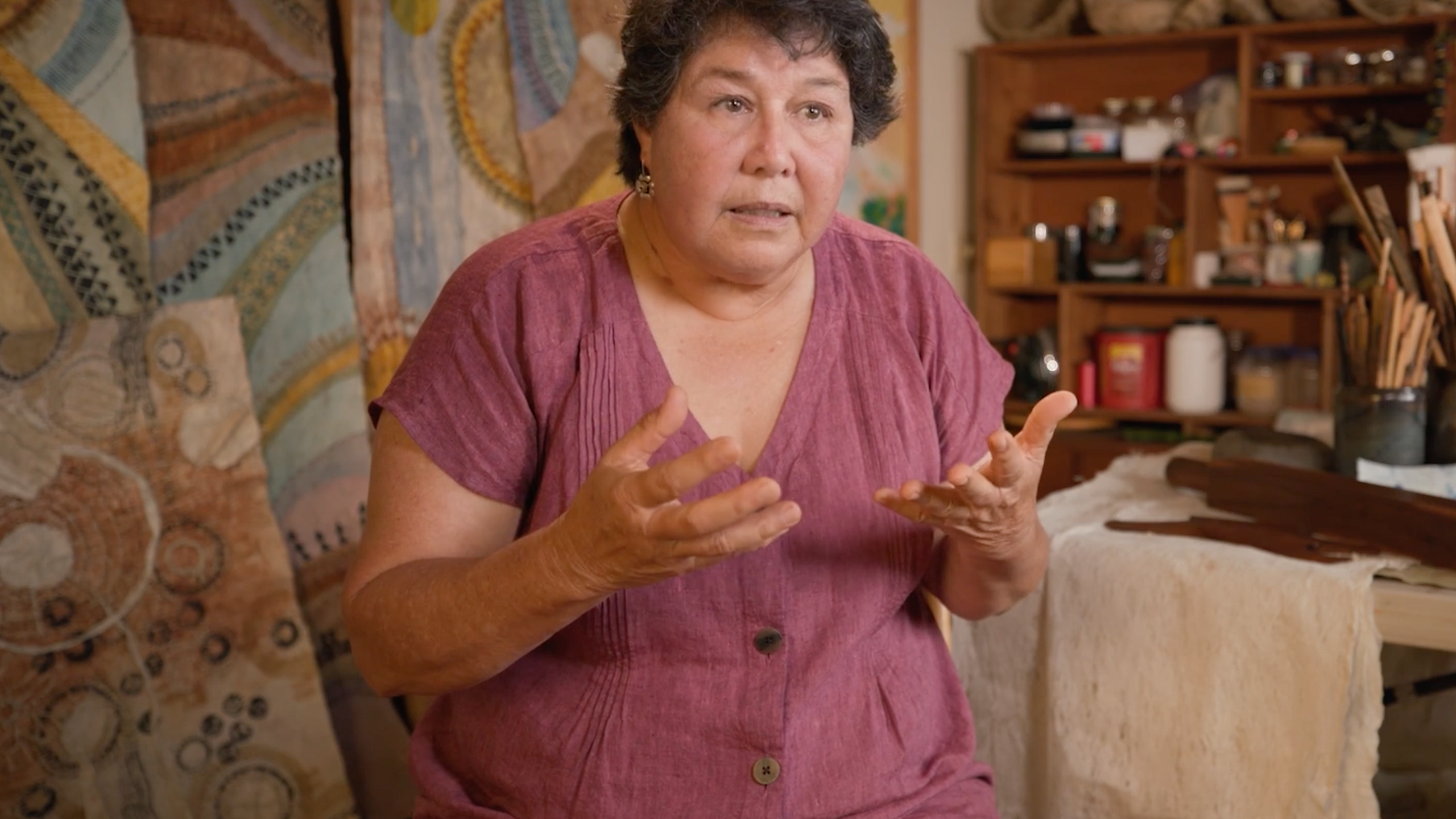Roen Hufford
Of Native Hawaiian descent, Roen was born on Molokaʻi and grew up on the island of Oʻahu. Her mother, the late Marie Leilehua McDonald, traced her family roots to the district of Puna on Hawaiʻi Island and the island of Molokaʻi, both rural areas known for maintaining many Hawaiian agricultural practices and holding firm to ancestral customs.
Roenʻs earliest memories are of helping her mother and family elders grow and harvest plants, cook, make lei for family and friends, and contribute to community projects. As Roen grew up, she helped her mother more and more – often with programs sponsored by the City and County of Honolulu Department of Parks and Recreation, where Marie worked for 23 years.
Activities revolved around teaching traditional Hawaiian crafts and games that helped youngsters learn about, respect, and embrace Hawaiian culture. Roen’s mother emphasized the importance of “teaching for success.” For Marie, this meant making sure students were encouraged, allowed to grow at their own pace, and always went away with something beautiful. Roen has fully internalized this philosophy, and it is this approach she takes with her many kapa students today.
After studying art at the Pratt Institute in New York and receiving a degree in fine arts from the University of Hawaiʻi at Mānoa, Roen worked for the City and County of Honolulu and then became a self-employed florist. All the while, she continued assisting her mother with preparing and giving demonstrations of lei making and donating lei for community causes. For a time, Roen worked with her Aunt Irmalee on the island of Kauaʻi, making floral arrangements for celebrations and significant events. Her years of working with plants and flowers would later be a tremendous reservoir of knowledge for the challenges of making and adorning kapa.
Roen’s experience with plant materials and her organizational skills were also of tremendous help to her mother when Marie took on the challenges of producing two seminal books on Hawaiian lei making. Roen was the photographer and illustrator for Ka Lei – The Lei of Hawaiʻi published in 1997. She made many of the arrangements and photographed some of the lei and models appearing in Nā Lei Makamae – The Treasured Lei, published in 2003.
Today, Roen is widely acknowledged as a master tradition bearer of ka hana kapa in her own right. She has expanded upon her mother’s initial work with tremendous results and success. Her kapa are highly sought after by a wide range of collectors and cultural practitioners.
Roen’s farming skills and cultivation of wauke go hand in hand. She and her husband Ken operate Honopua Farm in the uplands of Waimea, Hawaiʻi Island, where they grow organic vegetables in a large market garden, cultivate plants and flowers for making lei and seasonal wreaths, and maintain two large wauke patches. From this natural material growing right on her farm, Roen creates extraordinary kapa pieces. As Roen commented in an interview for HOEA, “If you are going to beat kapa, you have to know everything, you have to know how to cultivate the plant because that is where it all starts – all of this starts with the land. Were it not for the resources the land gives us, we couldnʻt do this.”
Like her Hawaiian ancestors, who found inspiration in the land and the sea around them for their creative and innovative designs, Roen bases her designs on the extraordinary beauty of the plants, animals, and landscape of her Hawaiian home.
Roenʻs work has been included in exhibitions held at prestigious venues including HOEA Gallery, the Bishop Museum, Maui Arts and Cultural Center, the Kahilu Theater Gallery, East Hawaiʻi Cultural Center, and the American Savings Bank’s Loʻi Gallery. Many of her kapa are in private collections and others are worn by kumu hula and cultural specialists during important events and ceremonies. In 2018, Roen and her many students held an exhibition of kapa at the Kahilu Theatre Gallery in Waimea, Hawaiʻi Island.
